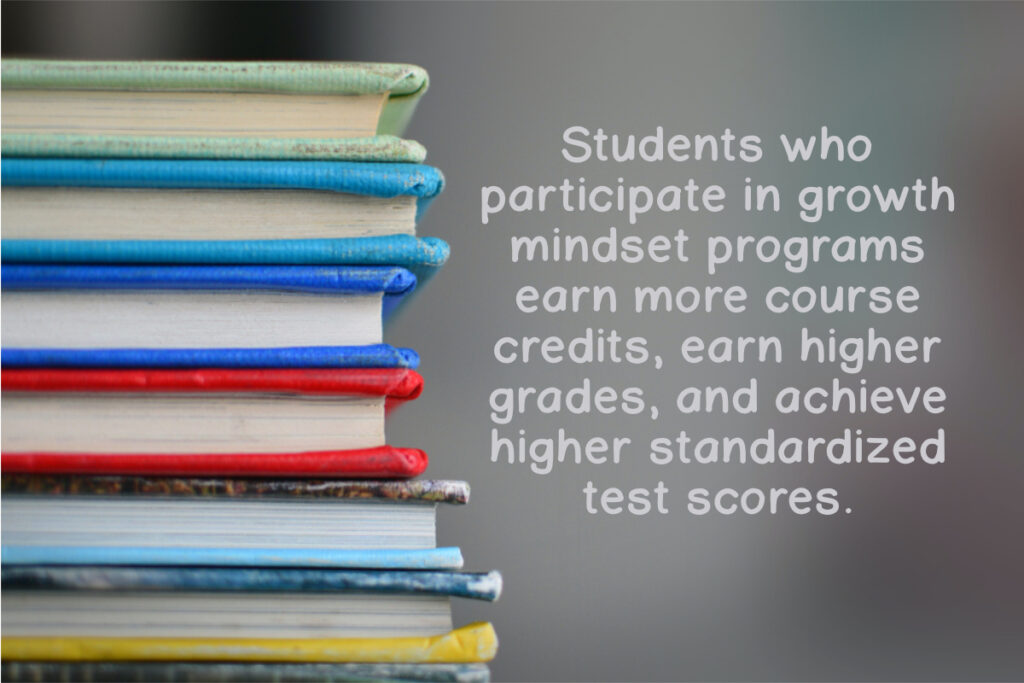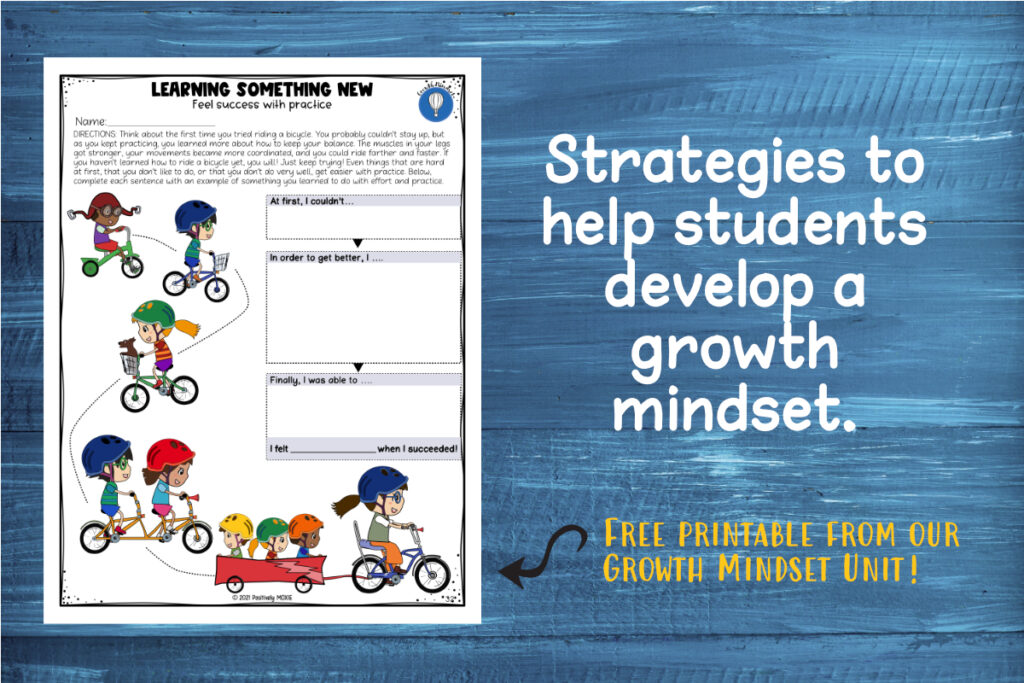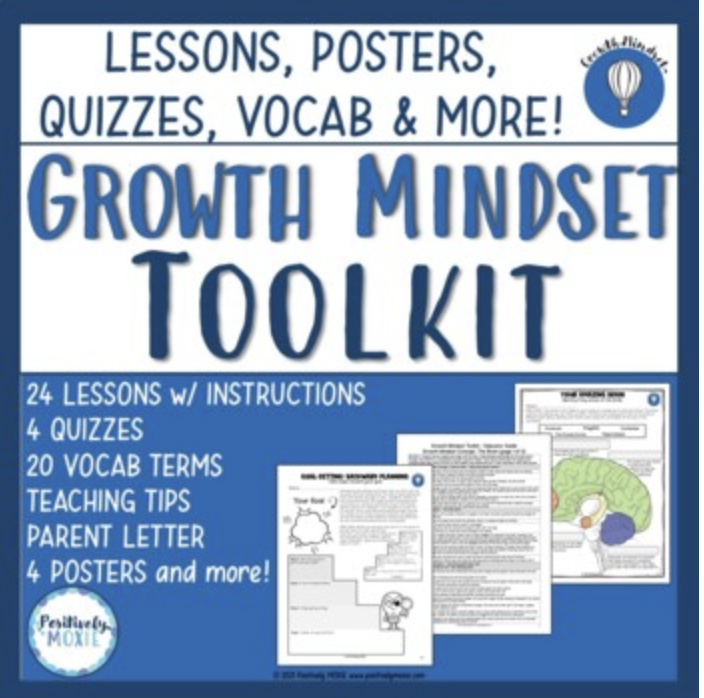
Why is growth mindset important?
Growth mindset for students comes from Carol Dweck’s book Mindset: The New Psychology of Success (2006). In her book, Dweck and her team present 30 years’ worth of research to reinforce the theory that human intelligence, creativity, athleticism, and other qualities are dynamic, malleable traits that can be developed and improved through the learning process. Truly, growth mindset activities for students can be fun and engaging!
Fixed mindsets dictate that people are born with limited amounts of intelligence and they are powerless to change it.
Growth mindset activities empower students to seek challenges rather than “play it safe” to simply appear smart, and helps them accept mistakes and failure as important steps along their learning journeys.
“No matter what your ability is, effort is what ignites that ability and turns it into accomplishment.” – Carol Dweck
Need even more reasons to teach growth mindset?
• Adolescents with a growth mindset earn higher math grades than those with a fixed mindset and they are more likely to take advanced math courses.
• Students who participate in growth mindset programs earn more course credits, earn higher grades, and achieve higher standardized test scores.
• Tenth grade students with a growth mindset were 3x more likely to score in the top 20% on a national standardized test. Students with a fixed mindset were 4x more likely to score in the bottom 20%
• After performing poorly on a test, people with a growth mindset chose to learn from people who did better than them. People with a fixed mindset chose to compare their scores with people who did worse than them.
• When receiving helpful feedback, people with a growth mindset had more active brains than people with a fixed mindset.

What is mindset?
• GROWTH MINDSET: Belief that ability and talents can improve with effort.
• FIXED MINDSET: Belief that ability is a fixed trait that cannot change
| FIXED MINDSET | GROWTH MINDSET |
| Thinking is rigid | Thinking is flexible and optimistic |
| Thoughts are often exaggerated, harsh or untrue | Struggle is viewed as an opportunity |
| Difficulty seeing big picture | Able to set back and see big picture |
| May see only one solution | Able to see multiple solutions |
| Holds us back and keeps us stuck | Able to try new strategies & surround ourselves with support. |
| Most likely when we are stressed, scared or angry | More likely when we are happy, relaxed and confident. |
The best growth mindset activities for kids help them understand why effort, trying different strategies, and helpful feedback are important. Students must learn that sheer effort alone is not enough; instead trying different strategies and asking advice from others are equally important for strengthening the brain.
Our Growth Mindset Toolkit contains four sections to teach students about brain growth, goal-setting, learning from mistakes, and reframing thinking patterns. Our growth mindset toolkit is designed to help students understand and practice growth mindset and it is helpful for upper elementary teachers and middle school teachers looking for growth mindset lessons and activities. It would also be an asset for parents, counselors, specialists and other educators.



